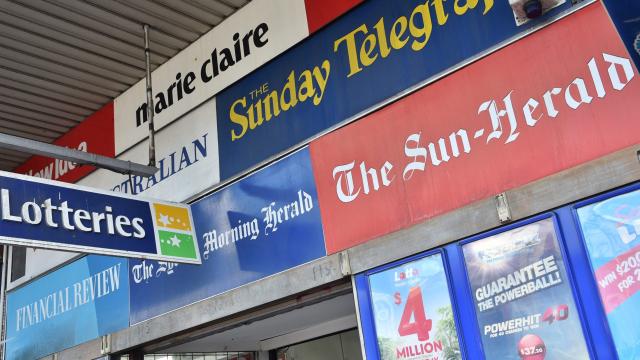In a disturbing move, Google is apparently experimenting with hiding links to some news sites from search results in Australia.
The change was initially reported by the Australian Financial Review, and was confirmed by Google to AFR as well as The Guardian. Some of the affected outlets include the Guardian Australia, the Australian, and the Sydney Morning Herald. While Google says these experiments are impacting “about 1% of Google Search users in Australia,” some users have anecdotally claimed that searching for these publications either leads to older stories, the sites not appearing at all, or the publications’ social media pages.
But why? The official line is that the experiments are intended to “measure the impacts of news businesses and Google Search on each other” and will end by early February. Google also told the Guardian that the company conducts “tens of thousands of experiments” every year. On the surface that might seem reasonable. At least until you remember that Google currently has a bone to pick with the Australian government.
Last year the Australian government announced it intended to force Google and Facebook to share advertising revenue with Australian news publishers in a proposal dubbed the News Media Bargaining Code. Unsurprisingly, Google is not a fan. In an open letter to users, Google warned that the move would “fundamentally damage Google Search as you know it today” and that the Australian government’s plan was “deeply flawed.” In statements to both the Australian Financial Review and the Guardian, Google defended itself by saying it estimated in 2018, it had provided $US218 ($282) million in “value” to publishers from referral traffic, whatever that means. Even if Google kicked $US218 ($282) million worth of actual money to news sites, that’s not even 1% of what Google makes in a year from ads in 2019.
In another Google blog penned by Richard Gringas, the company’s vice president of news, the company noted that it doesn’t “accept payment from anyone to be included in search results” and that was why it didn’t pay publishers whenever people clicked on a news link in search. (Some might argue paying for inclusion in search results is the exact function of ads, which is where Google makes the lion’s share of its money.) The company has also pointed to its efforts to support journalism, like its Journalism Emergency Relief Fund and a new licensing program.
And while Google has claimed multiple times that publishers take home the majority of ad revenue, in practice that doesn’t bear out. According to the News Media Alliance, because Google has a 90% stranglehold on search and controls 70% of the online ad tech market, it can compound its profits by earning from ads placed on news sites, the data gleaned from users who search for news, and the fees it collects by forcing news media and advertisers for using its proprietary ad tech. Publishers must then fight against other tech giants like Amazon and Twitter over the remaining ad revenue. The result is publishers take home as little as 30-40 cents ($0.52) to every dollar spent on advertising.
Aside from profits, the move is also discomforting as it’s essentially Google flexing on a sovereign state. Earlier in December, the Australian Financial Review also reported that Google engineers were working on a secret project to exclude Australians from regular search updates and services if it didn’t like how the government’s revenue-sharing plans went. In the past, Google also pulled Google News from Spain when the country tried to implement something similar. It also refused to pay French publishers in 2019, opting instead to alter how news articles were displayed in search.
Obviously, Australian publishers are upset at the latest development. “Google is an effective monopoly and by withholding access to such timely, accurate, and important information they show clearly how they impact what access Australians have to that,” a spokesman from Nine, the publisher of several of the affected Australian media sites, told the Guardian. “At the same time, Google are now demonstrating how easily they can make Australian news providers who fall out of their favour effectively disappear from the internet — a chilling illustration of their extraordinary market power.”
Right now, it’s hard to say how this will all end. Earlier this week, Google posted another blog that claimed “an overwhelming majority” of businesses and organisations had concerns with Australia’s proposed News Media Bargaining Code. Currently, the code is under review with a senate committee before it returns to Australia’s parliament.
